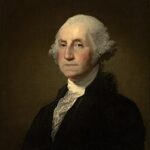George Washington’s Farewell Address stands as one of America’s most prescient political documents. Published on September 19, 1796, this masterpiece addressed the nation’s most pressing challenges. The first president carefully crafted warnings that would guide American democracy for centuries. ⚠️ Washington identified three critical threats to the young republic’s survival.
The Decision to Warn Against Partisanship
Washington witnessed the bitter divisions between Federalists and Democratic-Republicans firsthand. He observed how partisan conflicts threatened national unity during his presidency. The Farewell Address political wisdom emphasized that excessive party spirit could “kindle animosity” between citizens. Washington feared that unchecked partisanship would weaken democratic institutions permanently.
Foreign Entanglements and Neutrality
The address established America’s isolationist foreign policy foundation. Washington warned against “permanent alliances” with foreign nations that could drag America into European conflicts. 🌍 This guidance shaped American diplomacy until World War II. He advocated for commercial relationships while avoiding political entanglements that might compromise national sovereignty.
Sectional Unity Over Regional Divisions
Washington addressed growing tensions between different regions of the country. He emphasized that Americans shared common interests despite geographical differences. 📊 The president warned that sectionalism could fracture the union if left unchecked.
Impact:
The Farewell Address political impact transformed American governance and foreign policy for generations. Washington’s warnings became foundational principles that guided presidential decisions through multiple centuries. This document established precedents that influenced everything from party politics to international relations.
Immediate Political Consequences
The address immediately elevated national discourse about democratic governance. Political leaders regularly quoted Washington’s warnings during heated partisan debates. 🔥 The document provided moral authority against excessive party warfare that threatened democratic norms. Jefferson and Adams both referenced the address despite their own partisan conflicts.
Long-term Foreign Policy Impact
Washington’s neutrality doctrine shaped American foreign policy until the 20th century. Presidents from Jefferson to Wilson invoked the Farewell Address when avoiding European entanglements. The Monroe Doctrine built directly upon Washington’s isolationist principles. 🌍 World War I marked the first major departure from this foundational guidance.
Constitutional and Democratic Legacy
The address became required reading in American schools for over 150 years. Congress traditionally read the entire document aloud each year on Washington’s birthday. Modern political scientists consider it essential guidance for maintaining democratic institutions. The warnings against political divisions remain remarkably relevant to contemporary American politics. 📊 Historians consistently rank this decision among Washington’s most beneficial contributions to American democracy.
